Nest Thermostat vs. Learning Thermostat (3rd Gen)
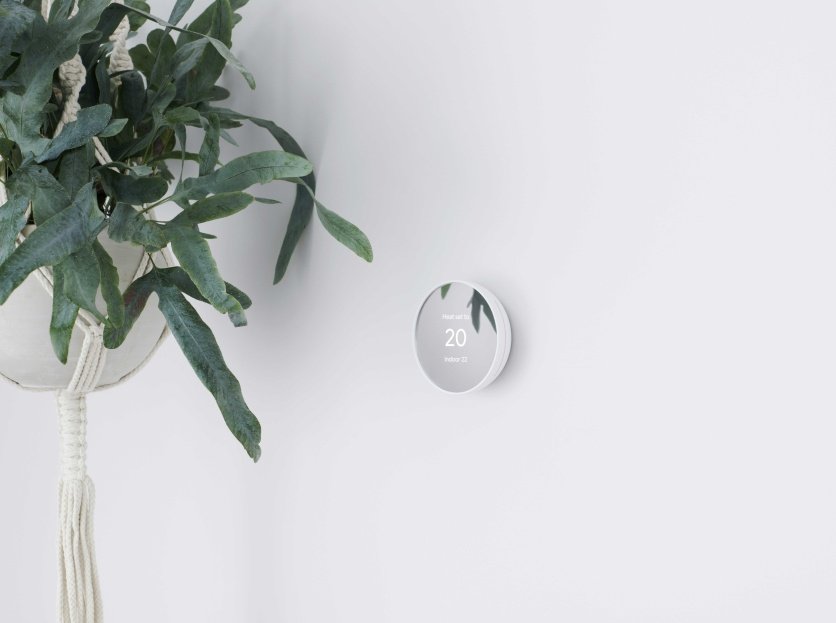
Nest Learning Thermostat (3rd Gen)
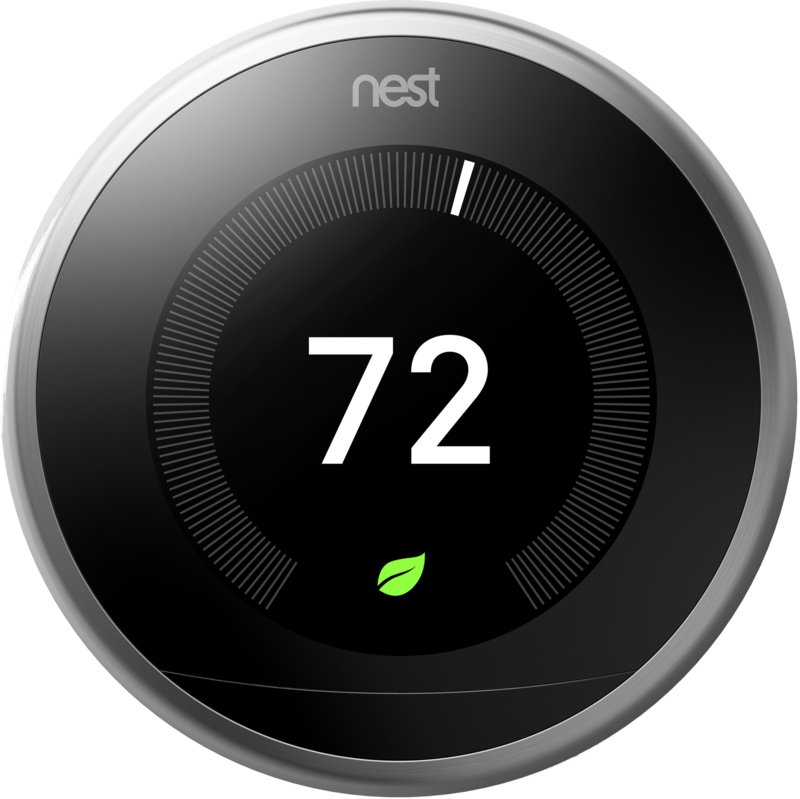
The Nest Learning Thermostat has a classic metallic ring exterior for easily changing the temperature and a bright display that makes the numbers larger when you're further away. This is a system that's compatible with most HVAC systems and it'll learn your preferences to keep you comfortable while lowering your energy bill.
Nest Learning Thermostat (3rd Gen)
Still the smartest
Nest Thermostat
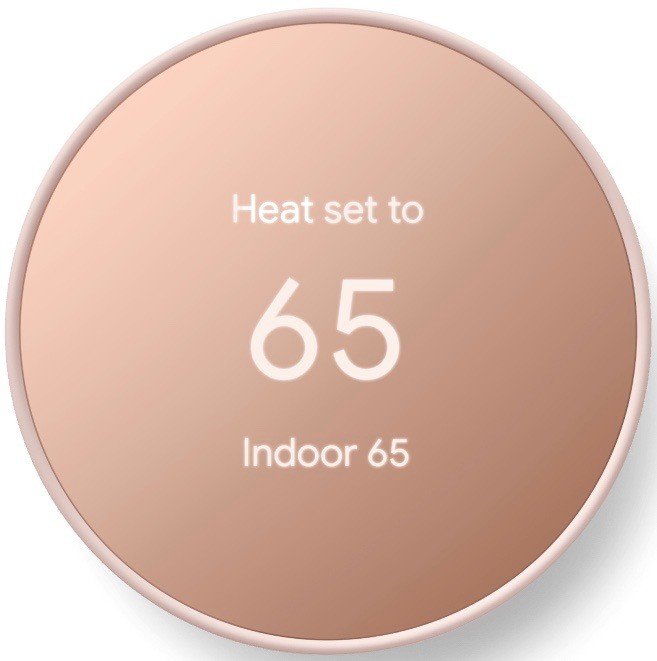
The newest Nest Thermostat was built for people who want to start saving on their energy bill without having to spend so much money upfront on a thermostat. It gives you all the robust Google Home controls you need to save money, a simple but pretty design, and Soli motion sensing.
Nest Thermostat
Affordably efficient
With the recent launch of the new Nest Thermostat and the shelving of the Thermostat E consumer model, we're weighing the new budget model against its older, smarter sibling: the Nest Thermostat vs. the Nest Learning Thermostat (3rd Gen). Laid side by side, both offer the same energy savings, but the Learning thermostat offers smart temperature adjustments and remote room sensors the new model lacks. But for some shoppers, the new Nest Thermostat will still be worth buying, primarily thanks to its much lower price.
Nest Thermostat vs. Nest Learning Thermostat: Temperature and app controls
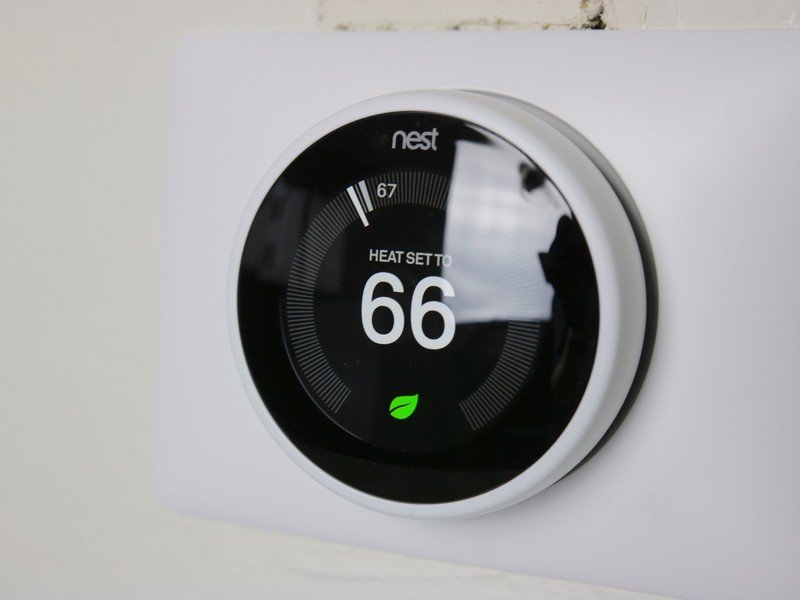
The first major change with the new Nest Thermostat is that it lacks the physical turn dial for changing the temperature found on the Learning Thermostat. Instead, it has a touch-sensitive strip along the side that you simply tap or brush up and down.
Whether you prefer the turn dial or touch strip will come down to preference.
Which you prefer will really be down to preference. The turn dial is likely more exact, but makes the thermostat take up more space and is more prone to fingerprints all along the edge. The new Nest Thermostat can be smaller and cheaper in part by removing the turn dial, but depending on its sensitivity the strip could make you overshoot your temperature target or make you wait longer for the right number.
Both devices have more exact temperature controls using the app, but Google has made some odd choices about app compatibility with both devices. For example, the new Nest Thermostat is only compatible with the Google Home app, with which you set it up and control it; if you control other Nest devices with the Nest app, you'll have to control your thermostat using a separate app.
On the other hand, the Nest Learning Thermostat can only be set up using the Nest app. If you prefer the Google Home app, you'll have to migrate your Nest account into the new app. While it's nice that the Learning Thermostat gives you the choice of Nest or Google Home after setup is complete, we believe that only the Nest app supports the optional Nest Temperature Sensors (more on those below).
Get the latest news from Android Central, your trusted companion in the world of Android
Whichever model you pick, you'll be able to control your Nest Thermostat using your Alexa speaker or Google Assistant speaker. Neither has built-in mics like some smart thermostats, so you'll need a separate device or voice assistant app on your phone for voice commands.
Nest Thermostat vs. Nest Learning Thermostat: Design changes
Beyond the switch from a physical turn dial to a touch strip, the main design update from the Nest Learning Thermostat (3rd Gen) to the new Nest Thermostat is the display. Instead of a 2-inch, 24-bit, high-resolution LCD screen with Farsight tech on the older model, the new thermostat has a 2.4-inch IPS LCD screen with a mirrored lens and Soli technology.
Both thermostats have motion tracking and geofencing, but only the Learning Thermostat makes the display text bigger when you're further away.
Soli is also found on the Google Pixel 4, which it uses to detect motion and light up the screen when you approach. When no motion is detected, it dims the display, turning it into a nondescript mirror on the wall. While the Nest Thermostat's lens is 0.4 inches larger than the Learning Thermostat, it doesn't do much with the extra space. The temperature, heat/cool setting and various eco icons sit in the inner part of the display with plenty of space around the text.
The Nest Learning Thermostat is a more traditional LCD screen with a 480x480 resolution and 229 pixels per inch (ppi). Using its proximity and occupancy sensors, the thermostat checks how far you are from the display and adjusts the size of the temperature data accordingly. Called Farsight, this feature will detect you from up to 20 feet away. By contrast, we don't know how far the Soli radar extends as it was designed to be short-range on the Pixel.
A potential upside to Soli is that it could support some gesture controls for the thermostat with a future update. Unfortunately, Google has given no indication that this will happen.
The Nest Learning Thermostat comes in seven colors, has a metal ring along the edge, and ships with a trim kit that covers up any damage it might make to the wall. The new Nest Thermostat has a plastic edge made of recyclable materials and comes in four vibrant colors, but makes you buy the trim kit separately for $15.
Nest Thermostat vs. Nest Learning Thermostat: HVAC compatibility and power
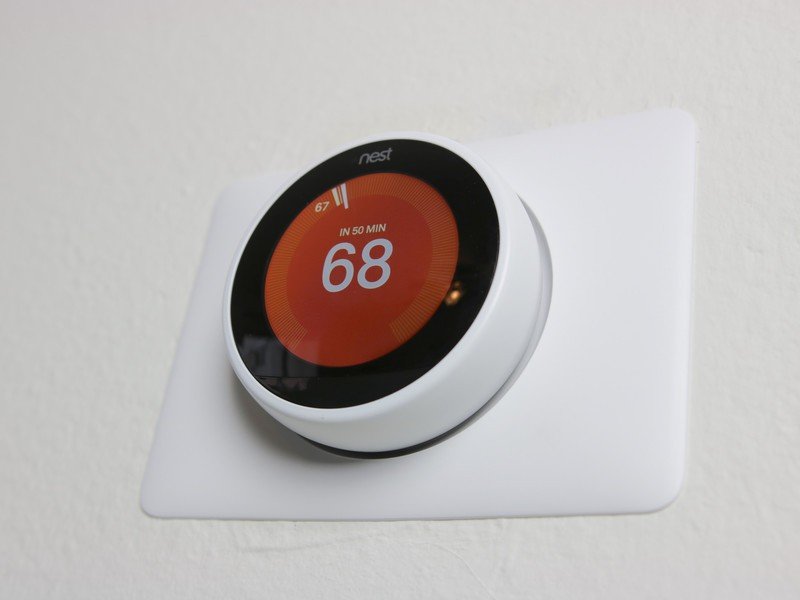
According to Google's estimates, 95% of heating, ventilation and air conditioning (HVAC) systems are compatible with the Nest Learning Thermostat, compared to 85% of HVAC systems with the new Nest Thermostat. 85% isn't bad at all, but you should absolutely use the Nest compatibility checker first to see how your system compares.
Neither thermostat requires a C wire to operate, but Nest Learning Thermostat owners have reported major problems after installing it without a C Wire, such as strange clicking or thumping noises. The new Nest Thermostat may not have these issues, but both have the same Google energy estimate of "less than 1 kWh/month", which could mean the problem will persist. You may want to check for a C wire or install your own before buying either Nest thermostat.
The other energy difference between the two is that the Nest Learning Thermostat uses rechargable batteries, while the new Nest Thermostat will make you buy a pack of disposable AAA batteries. Regardless, neither device should make you recharge or replace the batteries too often as they're mainly there as a backup to your home's wiring.
Once wired up to your HVAC system, either thermostat can now check on the health of the system, then give you an early warning if it detects a potential problem. If, for example, it's taking longer than it should to heat or cool your home, then you'll be alerted via email or Google Home app notification.
Nest Thermostat vs. Nest Learning Thermostat: Remote sensors and energy-saving smarts

Now for the fundamental difference between the two devices: the Nest Learning Thermostat will observe your temperature preferences after installation and slowly build an automatic temperature schedule based on your habits, while the new Nest Thermostat has no learning features whatsoever and can only suggest potential changes.
The Learning Thermostat makes your schedule for you, but after that, both devices are fairly similar in functionality.
Both devices allow you to set a custom daily schedule or accept preset suggestions that will balance comfort and energy saving. After you've set your schedule, the Google Home app has a Savings Finder feature that will suggest potential times when you could save money on your bill. And once you've left home, both the Learning model's sensors and the new model's Soli radar will detect this and turn off your hot or cold air automatically.
In other words, both devices do the same thing once you have a set schedule. The only difference is you'll have to set it yourself with the new Nest Thermostat, and have to trust in yourself to know your own preferences as well as Google's machine learning technology.
The Learning Thermostat also is compatible with the Nest Remote Sensors, which you can place throughout your house to give you exact temperatures in different rooms in the house. The new Nest Thermostat may be able to check temperature and humidity, but only in the room it's in.
For all of the other major differences in our Nest Thermostat versus Nest Learning Thermostat (3rd Gen) breakdown, check out our detailed spec table below:
| Header Cell - Column 0 | Nest Thermostat | Nest Learning Thermostat (3rd Gen) |
|---|---|---|
| Price | $130 | $250 |
| Dimensions | 3.3" x 1.1" | 3.3" x 1.2" |
| Colors | Snow, Sand, Fog, Charcoal | Polished steel, stainless steel, mirror black, black, brass, white |
| Materials | Recycled plastic housing | Metal ring |
| Trim Plate | Sold separately | Included with purchase |
| Display | 2.4-inch IPS LCD with mirrored lens, 240 x 320 pixels | 2-inch, 24-bit 480 x 480 resolution LCD, 229 ppi |
| Farsight | No | Yes |
| Soli | Yes | No |
| Energy Star Certified | Yes | Yes |
| Built-in sensors | Motion Temperature Humidity Capacitive touch Ambient light | Temperature Humidity Proximity Ocupancy Ambient light |
| Remote sensors | No | Yes, supports Nest Temperature Sensor |
| Manual temperature changes | Touch strip on side | Physical turn-dial |
| App connectivity | Google Home | Nest for setup; Nest or Google Home for controls |
| Voice assistants | Alexa & Google Assistant | Alexa & Google Assistant |
| Power | Various HVAC system wires, 2 AAA battery backup | Various HVAC system wires; rechargeable lithium ion battery |
| HVAC Compatibility | 85% of systems | 95% of systems |
| HVAC problem monitoring | Yes | Yes |
| Wi-Fi | 802.11b/g/n 2.4 GHz, 802.11a/n 5 GHz Wi-Fi 802.15.4 Bluetooth LE | 802.11 a/b/g/n 802.15.4 Bluetooth LE |
| Turns down heat when away from home | Yes | Yes |
| Warranty | 1 year | 2 years |
Nest Thermostat vs. Nest Learning Thermostat: Newer doesn't mean better
To put it simply, the Nest Learning Thermostat (3rd Gen) is one of the best smart thermostats available, and is certainly a better device than the new Nest Thermostat — as it should be considering the much higher price.
Your decision of which to buy will depend on whether or not you think its learning tech, better Farsight display, and more accurate temperature readings are worth the extra money. The price will more than double, too, if you buy the sensors at $39 each. People with larger homes, for example, will certainly want the Learning Thermostat, as a temperature reading in one room isn't much good in a multi-floor house.
However, for all of its smarts, the Nest Learning Thermostat isn't going to save you more money than the new Nest Thermostat. Both devices turn off when you leave home, give you savings suggestions, and monitor your HVAC health. So long as you're truly willing to set a cost-cutting schedule yourself, and don't mind the lack of a traditional turn dial, then the newer model may be a better fit.

Michael is Android Central's resident expert on wearables and fitness. Before joining Android Central, he freelanced for years at Techradar, Wareable, Windows Central, and Digital Trends. Channeling his love of running, he established himself as an expert on fitness watches, testing and reviewing models from Garmin, Fitbit, Samsung, Apple, COROS, Polar, Amazfit, Suunto, and more.
